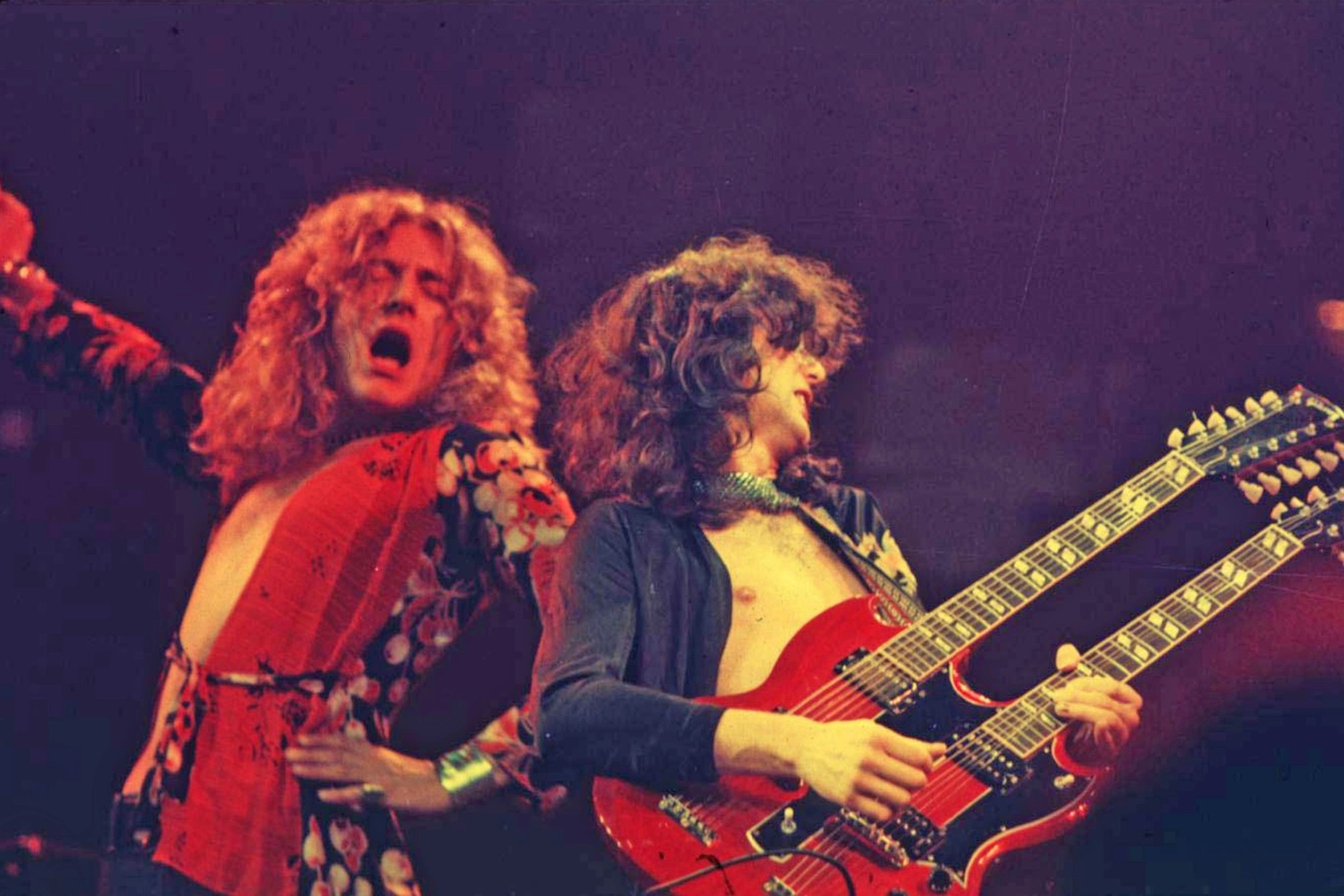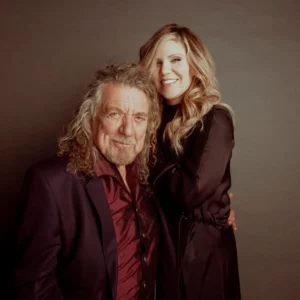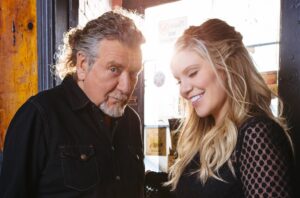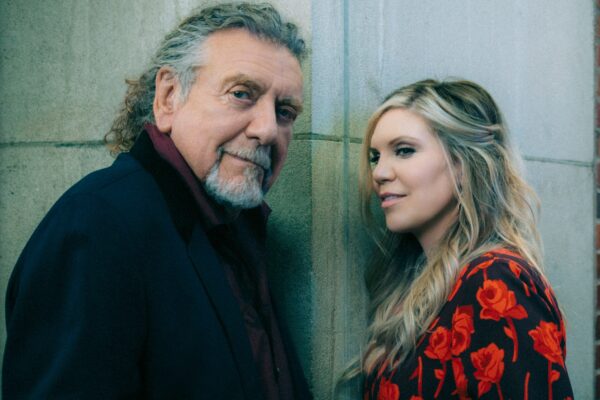Robert Plant and Alison Krauss remind us of the power of music
By Lynne Robinson
It’s summer 1969, and I’m high up on some serious scaffolding, painting a Muscha-inspired art nouveau mural on the front of an old building in Cape Town named The Market.

The place was an ad-hoc hodgepodge of market stalls selling everything from incense and saris from India (by way of Durban), handmade sandals and clothes, bibelots, books, and records smuggled in from England and America by brave travelers. The Beatles were banned the minute John Lennon declared them more popular than Jesus, with more to follow.
Theo was tall, with translucent white skin and very long, pale blonde hair. He was one of several Afrikaans kids in our midst, branded ‘petoegers’ or protesters by the Broederbond, SA’s secret police under Apartheid.
Theo’s friend Danny had invited me to help with the mural. Danny Malan was an incredibly talented artist, and I felt fortunate to be taken under his wing. Sometimes he and Theo spoke Afrikaans and I struggled to keep up, being an English-speaking South African, but as far as music was concerned there was no language or color barrier.
At night when The Market closed, several of us would gather inside its labyrinthian depths, along with Anwar and Sita, two Cape Malay friends who would be locked away without a trial had they been caught crossing color lines, Siswe and Andi from Guguleto, who probably would be killed first, but under the cover of darkness, and with the common language of music, we gathered and shared stories and dreams.
That summer, “Whole Lotta Love” was playing on repeat. The blistering track from Led Zeppelin’s second album contains some of Robert Plant’s most erotic lyrics, based on a Muddy Waters rendition of a Willie Dixon song, called “You Need Love,” where Waters sings:
I ain’t foolin’, you need schoolin’
Baby, you know you need coolin’
Woman, way down inside
With the blown-up drums at the bottom of the track, and Jimmy Page (Led Zeppelin’s producer here), let loose in the studio, messing around, discovering all sorts of tricks, which you hear the fruits of at around 1:20 minutes in, allegedly the result of him and engineer Eddie Kramer “twiddling every knob known to man.”
But the song peaks at the 4-minute mark, when we hear Robert Plant as if in the distance softly sing each line before his full-throated, full-throttled vocal comes in like a cannon ball. This is one of the first uses of a technique known as a “backward echo.” Years later, Kramer said it happened by accident.
You need cooling
Baby I’m not fooling
I’m gonna send ya
Back to schooling
Plant’s vocal, Bonham and Jones’ thunderous rhythm, and Page’s seminal guitar solo was the bona fide soundtrack to our lives that summer, as the music moved us on.
“I’m going to work for them.” Theo was leaving for London the next day and he’d made up his mind to get a job — any job — with Led Zep.
Not too long after he arrived, we heard Theo had realized his dream, becoming a roadie for the band.
I saw Led Zeppelin a few years later, soon after I’d moved to the states, and they were as great as the reputation that had preceded them. And loud. Louder than The Who! Still, in my mind, they will forever be associated with that summer on the southern tip of a continent in metamorphosis.
After owning the 70s — taking Rock’s mantle from The Beatles before them, Led Zeppelin took their final bow with “In Through The Out Door” in 1982, but by then, my fickle musical heart had been captivated by the likes of The Clash, Tom Petty, Television, Talking Heads, Blondie, Patti Smith and all the other purveyors of Punk and New Wave; Led Zeppelin and their ilk had reached dinosaur status. The phoenix caught fire.
Out of the ashes rose The Honeydrippers. Robert Plant formed the group in 1981, fulfilling a long-held desire of fronting a band with a heavy rhythm and blues foundation. The band included fellow former Zeppelin member Jimmy Page, the late Jeff Beck, along with other friends. Their only recording, an EP, “The Honeydrippers Volume 1,” was released in November 1984.
In particular, The Honeydrippers’ stand-out remake of Phil Phillips’ tune “Sea of Love” hinted at Plant’s new direction, one from which he never looked back.
Recently, the legendary rocker and Americana darling Alison Krauss added Taos to the Tour Dates on her website. Kit Carson Park on June 17. AMP followed and The Town of Taos announced the show, offering locals discounted tickets at the visitors center south of town.

With the announcement comes renewed appreciation of their first outing, “Raising Sand,” sweeping the 2009 Grammys, as it did, taking home Best Album of the Year. Fast forward to now.
One wonders how this unlikely pairing came to be. The answer lies with the American folk blues legend Lead Belly.
“I first met him at a Lead Belly tribute gig in Cleveland in 2004 where we were both singing,” Krauss recalled in an interview in 2011. “We hit it off over an old bluegrass artist called Ralph Stanley.” The Stanley Brothers are the Bluegrass gold standard, as Lead Belly is to Folk.

At that point in time, Plant was already familiar with Krauss, recalling he had first heard her outside a Shropshire pub. “I remember pulling over and writing the name down — who the hell was that?” he told The Guardian in 2017. So, when he got the offer to collaborate, he was down.
“I was basically tutored by Alison,” Plant said in The Guardian interview. “She’s a very precise singer who’s done more duets than you can shake a stick at, and I was thinking, ‘Help, I’m a rock singer, no matter what I do!’ But, of course, I’m not — I’m just a guy that sings songs. She’d hit the talkback button from the control room, lean into the microphone and say: ‘Robert, why don’t you sing the same thing twice?’”
Plant has sung his share of duets too; on Patti Griffin’s new album “TAPE,” one track features her former Band of Joy bandmate and romantic partner. Griffin and Plant have a long history starting with Band of Joy in 2010. They lived together in Austin for several years, remaining friends after splitting up.

The musical collaboration between Plant and Krauss is a testament to the power of music to reach across genres, cultures, oceans and decades; these two artists bridged immeasurable gaps to tap into a common well of creativity.
Touring behind their new release, “Raise the Roof,” the Taos date promises to be the most special of the tour, highlighting the intimacy of the duo’s musical approach in an equally intimate setting.
And I wonder where Theo is.

